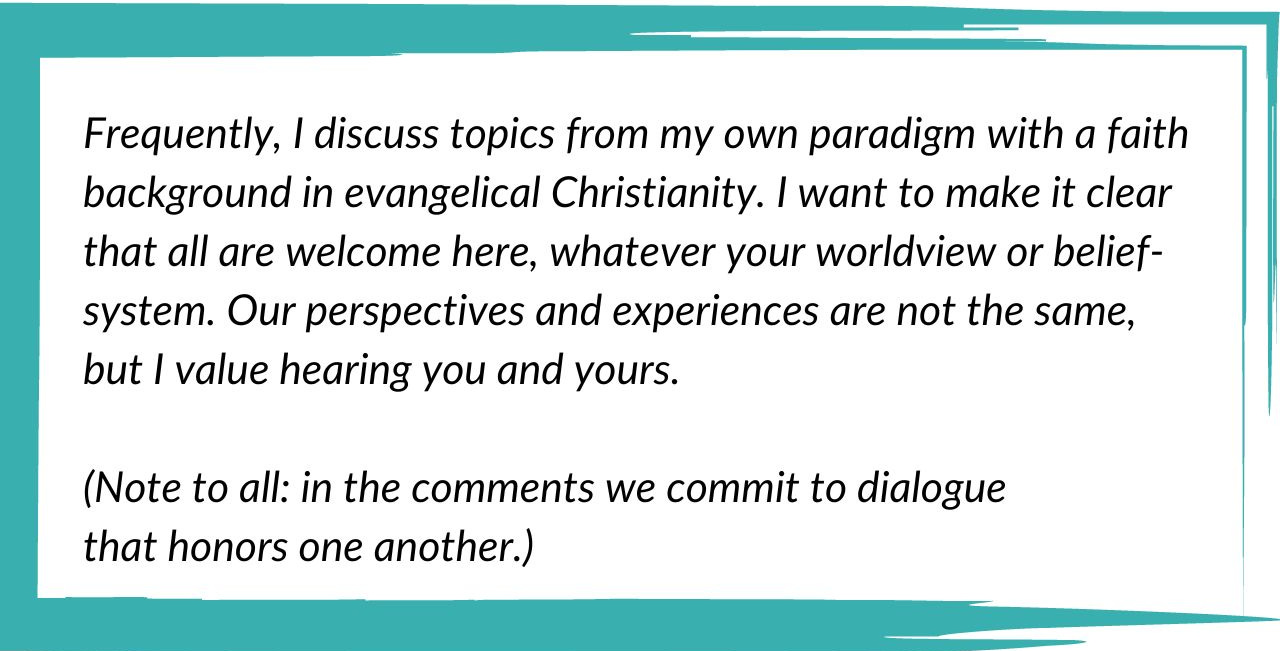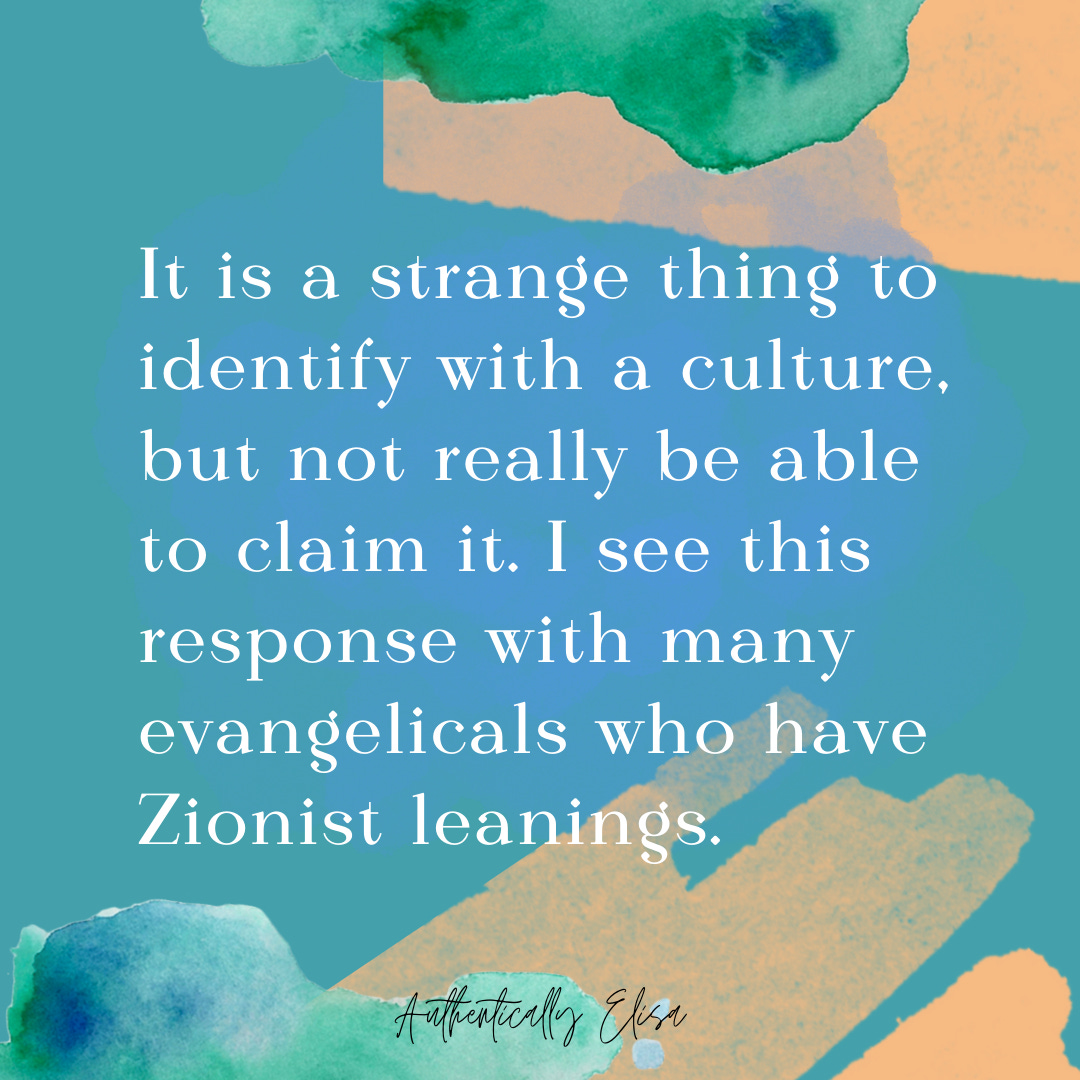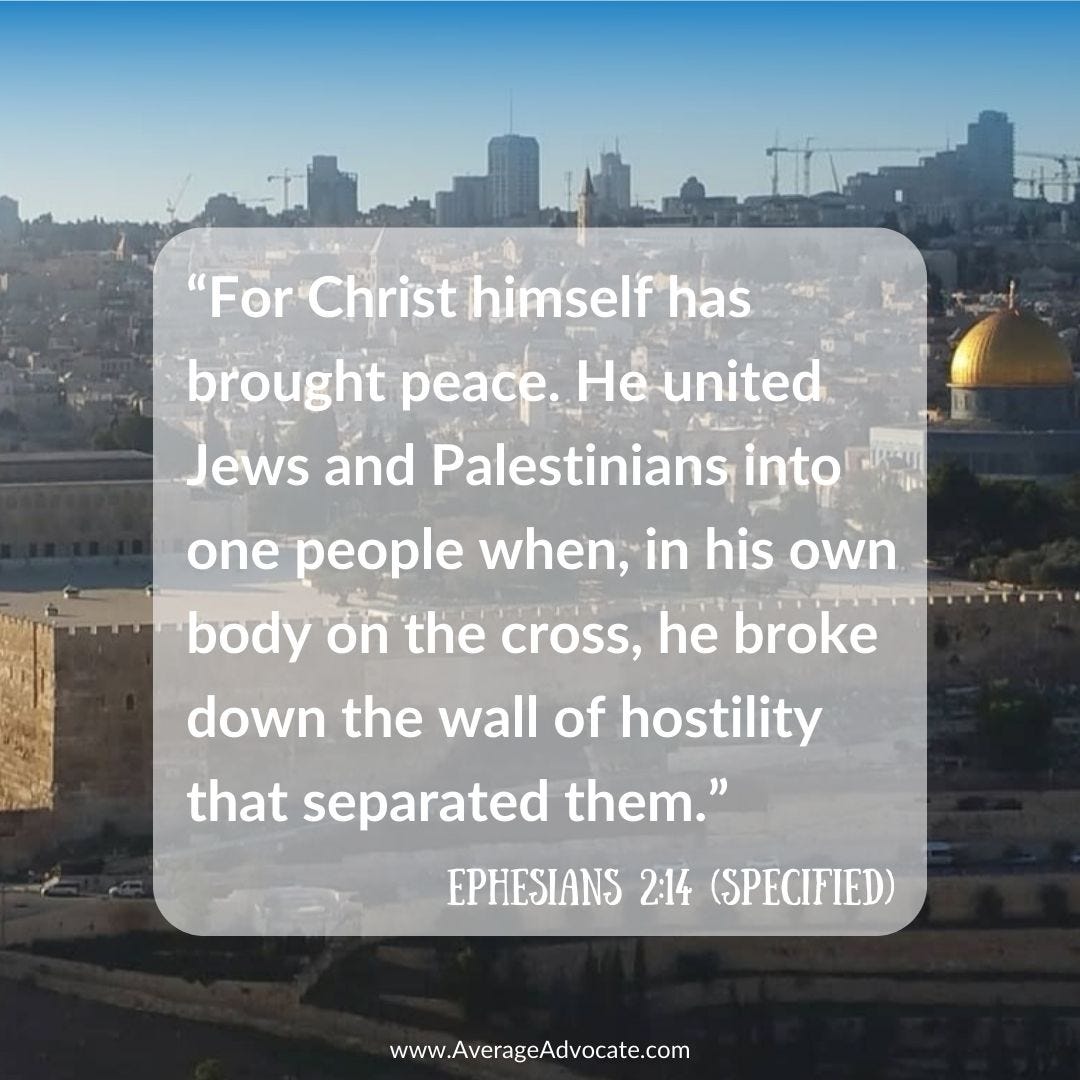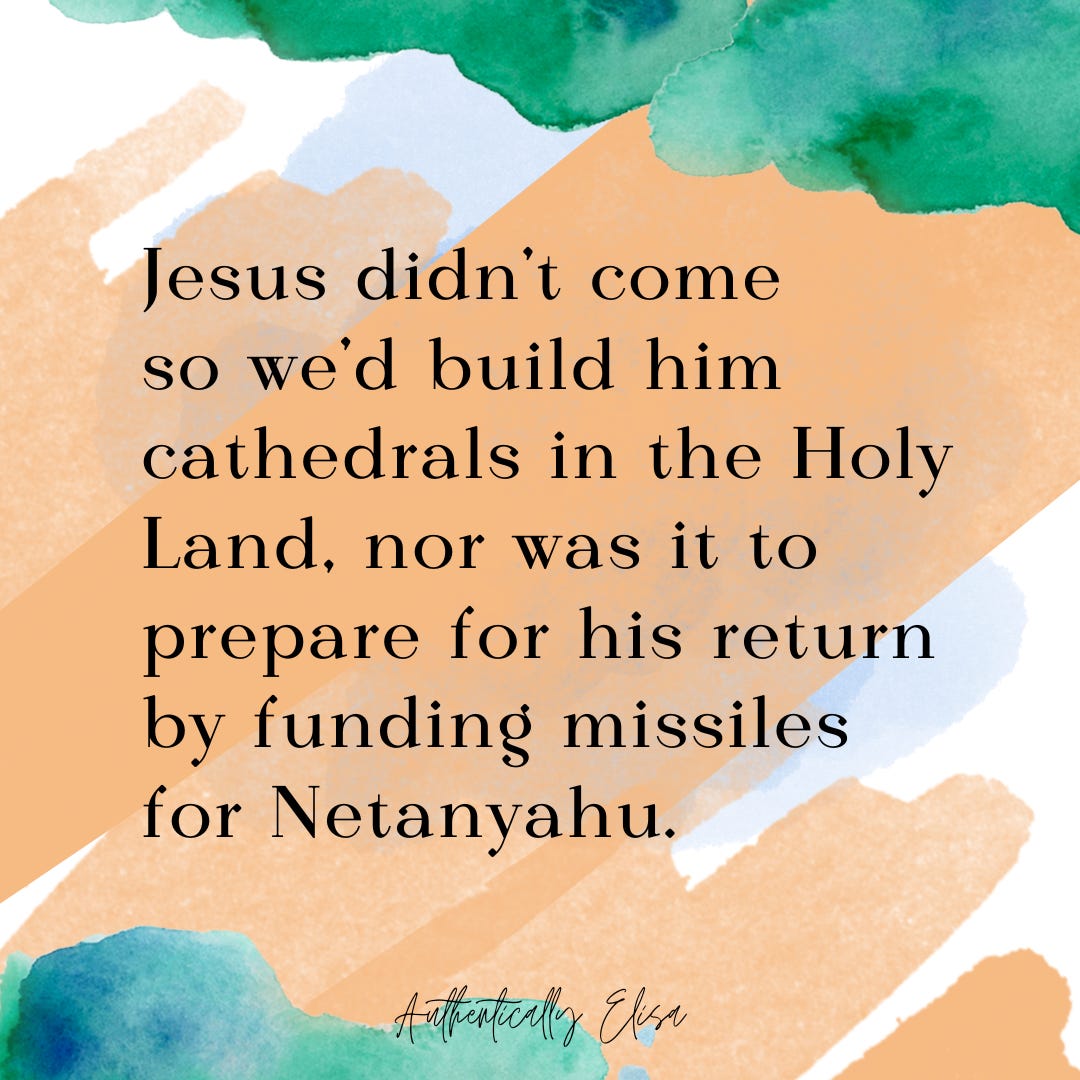One People: On Israel and Palestine
Four years ago I went to the Middle East. This is what I took away.
Is it really worth my effort to say my piece on Israel and Palestine? On second thought, yes, it is.
Destination
Although I’m a travel buff, I was never interested in visiting the Holy Land. I blame this on one of my many “holier-than-thou” phases. I’d heard rumors about how tourists worshiped at religious sites and sects fought for ownership of the most benign responsibilities, like the honor of sweeping a shrine’s stairs. I wanted nothing to do with this idolatry. Besides, I was too smart to fall for myths like “this is where Mary gave birth” or “this is the exact spot nails were driven into Jesus’ body.”
And yet, four years ago, when my husband and I were lovingly bickering about where to go for our fifteenth anniversary, somehow, Israel made the list. It was the only destination we agreed upon. And so reservations were made, our Airbnb was booked, and an old jalopy was reserved for us. (Apparently rental cars in Israel are not distributed nice and new.)
Falling in love
We arrived and I fell in love. And I don’t mean to my husband—although the trip was delightful in all the right ways to foster our love, too. Rather, it was a regional infatuation. The intimacy I felt caught me off guard. Israel was a stranger tucking my hair behind my ear, kissing my cheek.
There was the charm of European promenades, with minuscule cafes. Then, around the corner shawarmas sizzled and spice piles lined the lean stone alleys. Everywhere held the intrigue of spy movies. Elements of history were layered one upon another, interwoven and intertwined, both literally and figuratively. Millennia of stories were fighting to be heard from underfoot, as we languidly perused cobblestone streets in wide circles, exploring the nooks and crannies from every angle we could. It helped that the weather was nearly perfect, not much different than that of our San Diego home.
Israel-Palestine was a collision of modern and ancient; wealth and poverty. There were so many internationals and cultures stuffed together and wrapped tightly into the smallest box. This region has every red flag, yet it seduced and fascinated me. I wondered how I could ferociously adore what I knew was a powder keg soaking up a pool of gasoline.
Everyone’s opinion
My good friend asked me the other day what I thought of the situation in the Middle East. I told her I didn’t really know if I had anything worth adding to the conversation.
For one, the night before I had blasted my sweet unassuming husband with what I really thought, and I was sure at least that wasn’t worth repeating.
I also wanted to heed the observation of a writer who talks about healing from negative cultural aspects of our dominant White culture (I actually get to interview her this month for the Justice Daily Podcast!). She pointed out that White folk frequently feel compelled to make big public statements, as though they are an authority on everything.
Honestly, I think she hit the nose on the money. I began asking myself why I feel the need to say something in situations like this. And so, already busy with our own local humanitarian crisis in San Diego, I decided to bunker down, lament, and absorb what others who have a wider context than I do were saying. It has been helpful.
But my friend didn’t let my claim to have nothing worthwhile to say stand. She challenged, “Well, I still want to know what you have to say. I think it matters.” Okay. Maybe it does. So here we go.
Deconstructing Zionism
Among my studies of “what it means to be human,” as a cultural anthropology major, I took a class on global refugees. I hadn’t considered the Palestinians refugees before that, despite another course I took specifically on Israel-Palestine. As I shared what I learned in the class, in no uncertain terms my husband told me it was undoubtedly biased. I agreed—to an extent. What was obvious though, was how complex the Israel-Palestine situation was and is, something that became even more evident in person. I also knew that however biased my college and university were, it was still good to get a different perspective than the one I was raised with.
Most of my understanding of the dynamics in the Middle East come from my rather Zionistic Evangelical upbringing. Believe it or not, I actually thought I was at least partially Jewish for a long time. I cherish that I learned a lot about the Jewish culture, strongly resisted antisemitism, and that Hanukkah, in all its dreidel-spinning, latke-eating, and candle-lighting glory, is now part of my own heritage.
It became weird, though, when as an adult I would be among friends who actually were Jewish and I would know extensively more about their culture and belief system than they did. Or the time I was in a small group at a new church in my early twenties. Through the discussion it became evident no one else valued or cared that much about Israel, at least no more than any other nation. Shame crawled up my neck in shades of pink as it hit me in that moment that the church of my youth likely idolized this Israel. I began questioning why. (Note: There are reflection questions and resources that you may find helpful at the end of this article, if this is you too!)
To be frank, my “expertise” isn’t really isn’t much of anything, but it seems like it should count for something. It is a strange thing to identify with a culture, but not really be able to claim it. I see this response with many evangelicals who have Zionist leanings. There is anger and outrage—not at injustice across the board—but at those who would hurt “God’s Chosen People” and who are a threat to the nation of Israel. Those in my sect of evangelical Christianity are highly invested, protective aunties and uncles.
I can’t blame them, no more than I can blame my family or the churches of my youth. Our response makes sense from our context. It is what we were taught—that Jesus’ promise to return cannot be fulfilled until the Holy Lands belong to the Jews alone and the Temple of God is rebuilt. Of course we would stand with Israel.
A truly Jewish celebration
We walked a lot that day. My feet were beyond sore. We had gone from the City of David, down to Hezekiah's Tunnel, and up the Kidron Valley, which all have a spectacular view of Wadi Hilweh, a neighborhood in the Palestinian Arab village of Silwan. Then we walked past the supposed Gethsemane, and the Cave of the Prophets, onto the Mount of Olives. Exhausted—as surely you must be reading this—we took a cab back down to the Dung Gate in the Muslim Quarter of Old Jerusalem. After exploring here for a while, trying to peak over the wall at the Pool of Bethesda, we meandered down the Via Dolorosa. We were allowed past Israeli guards in their crisp olive uniforms, with machine guns slung on their sides, and found ourselves back at the Western Temple Wall right as the sun set.
We had stumbled into something magical. Candles were being lit in all the surrounding buildings and doorways of homes. Crowds were in their religious dress, representing various sects of Judaism. Some were dancing, others washing their hands in ceremony, and many singing hymns I’d never heard, rocking back-and-forth, facing the Western Wall. On the nearby roof of what I believe was a synagogue, the last light on a massive menorah was lit by rabbis and their students with fanfare, shofars, and song. It was the last night of the Hanukkah and the Israeli Prime Minister held the mic, guards, more rabbis, and cabinet members all around. The anthropologist in me knew it was an ethnographer’s dream.



Don’t cross the barrier
Earlier on this trip, I was chased and yelled out of the section of the Western Wall that was reserved for only men. I didn’t know I was banned entry, the sign was so small and blocked by a chair. I was actually trying to be respectful—I even had the required head-covering! I felt shame as tears stung my eyes, and I tried to shake off the message attempting to weasel its way back into my soul: You aren’t enough. You aren’t worthy to get this close. As a woman, you are less-than.
And so I moved to the smaller section for women and children, where construction blocked even more of the area. There was no room for us. It was frustrating. On this last night of Hanukkah, I knew I had to stay back while my husband went right up to the front of the spectacle.
I was still mystified with the beauty and experience around me. Sometimes we are faced with the choice of whether we will let disappointment and limits—especially the unjust ones—darken all that is wondrous. But we, as humans, have the amazing capacity to hold opposite feelings at the same time. Despite my disappointment, I am thankful that joy was how this marvelous evening settled into my memory.
Old words; new value
As I tried to take it all in, scriptures flitted through my mind, and they had little to do with Zionism. They had to do with liberation.
They sounded like these:
We didn’t need the law. Jesus fulfilled the law. (Matthew 5:17)
We didn’t need the temple. Jesus had made us his temple. (1 Peter 2:4–5)
We didn’t need segregation, Jesus was our peacemaker. (Ephesians 2:14)
Tacos without tortillas
Have you ever craved milk with chocolate cake? Or enjoyed the right cheese paired with the perfect fruit or wine? Can you imagine a taco without a tortilla for its shell? No, you can’t, because a taco doesn’t even exist without its tortilla! Somethings in life must go together, or we miss a spectacular whole.
I had the feeling I had been missing a certain dynamic with these scriptures, as if I only had the taco shell, but not the protein. I was sure I had read them a hundred times. Yet despite my familiarity, before I visited the Holy Land, these verses felt largely irrelevant outside a discussion on doctrine.
Once I could ingest them in something closer to their original atmosphere, with the tastes, smells, sounds, and sights they were written within, their meaning ignited. Stomping through and around the Old City of Jerusalem from one quarter to another gave me a new context.
An absurd promise
That day I passed Armenians, Palestinians, Arabs, and Jews. European and Asian tourists passed by me. Internationals hailed from all nations. So many of these people are at war. And as I examined the boundaries, cultural codes, religious and ethnic dress—everything that divides us—I couldn’t help remembering that this was supposed to hold true:
“There is no longer Jew or Gentile, slave or free, male and female. For you are all one in Christ Jesus. And now that you belong to Christ, you are the true children of Abraham. You are his heirs, and God’s promise to Abraham belongs to you.” (Galatians 3:28-29)
This claim is downright absurd. In this context, walking the dusty streets of Jerusalem, the promise that we can be one people is not only shocking, but impossible.
West Bank - Palestine
A day or two later, we walked from the outskirts of Jerusalem, past the gigantic border towers, into Bethlehem. This area specifically was renowned for its liberation street art, covering the massive walls. Not only it incredible; but the museum-like plaques on the border wall narrated the Palestinian story to us. I was so glad we went; it was so different from the Israeli-controlled areas we had been in.
After a lot of walking, we made it to Manger Square, home of the lovely Church of the Nativity. Epiphany, and then the Armenian Christmas were still on their way, which explained the massive Christmas tree and the Christmas music broadcast loudly across the square. That’s when the Imam’s call to prayer rung-out out from the Mosque of Omar, which, alongside the Palestinian Peace Center, stands juxtaposed on Manger Square. This surreal moment will forever define the collision of worlds for me. How could we become one people?



The threat
Despite really enjoying our night in Bethlehem, it didn’t start so smoothly. Going into Palestine was more distinct and frightening than any others I have had traveling. Maybe our timing was off—just a little before sunset—and apparently most tourists don’t “just walk into” the West Bank, but drive in with a tour. As we arrived, men were chanting and bowing in prayer on the walkway nearby, and I was acutely aware there were no other women to be seen. The clean surroundings where we’d been on the other side of the border wall shifted to noticeably impoverished ones. In the unknown, my senses were already on high alert.
Then, walking out of the immigration building, we were swarmed by ten to twenty men who began following us, shouting, clustering, either trying to sell to us, or wanting something unknown from us.
Thankfully, because my trauma history hasn’t taught me that all unknown men are dangerous, and because the men stopped following us after a few dozen yards as my husband ushered us away into a wide-open space, nothing escalated. It could have, and much too easily. We were probably just potential income. I was able to assume our experience wasn’t meant to be as threatening as it momentarily felt. We were able to go on to enjoy our evening, and even have a couple conversations with some local Palestinian men.
Isn’t this usually the story? Unfamiliar cultural dynamics clash, boundaries get crossed, and we feel danger. We protect ourselves and our spaces, and that is how wars start—even if a threat isn’t real. Or maybe the threat is real. The power keg gets lit, as it has been between Israel and Gaza over the last horrific month.


Beyond Hostility
Back in our cozy Airbnb, I kept turning over another passage I just happened to be reading while visiting Israel-Palestine. It was and still is profound. Here’s a glimpse:
For Christ himself has brought peace. He united Jews and Palestinians into one people when, in his own body on the cross, he broke down the wall of hostility that separated them.
Ephesians 2:14 (NLT)
No, it doesn’t actually say Palestinians, it states “Gentiles” (non-Jews). This passage can also read, “He united Jews and Cambodians,” which is also cool, in a different way. But as soon as we start seeing what this means, specifically for Israelis and Palestinians, the quicker we grasp God’s heart for the region.
It goes on…
“He made peace between Jews and Palestinians by creating in himself one new people from the two groups… hostility toward each other was put to death… So now you Palestinians are no longer strangers and foreigners… [these groups are] joined together in him, becoming a holy temple for the Lord… Both Palestinians and Jews who believe the Good News share equally in the riches inherited by God’s children. Both are part of the same body, and both enjoy the promise of blessings…”
Parts of Ephesians 2:13-3:6 (NLT)
Just read it yourself. It is awe-inspiring—even to unseen dimensions! Whoa.
God isn’t interested in nations and borders anymore—at least not in the context of building his kingdom. His way has been etched as a foundation stone as something new, something impossible, and prejudice-shattering through his Anointed One.
Anything less than oneness isn't what Jesus came for.
Peacemakers
Remember my friend who asked me what my opinion was? I’m going to warn you, it is beyond idealistic. Here it is: I believe a better reality is possible for Israel-Palestine, even if nearly impossible. I want to align with these scriptures to pursue ridiculous unity. And as such, I am a peacemaker.
My husband and I were told by our host to eat apple strudel and drink cappuccinos at the old Austrian Hospice. And although the strudel was nice and the view was lovely, what stood out to me was their work in reconciliation and peacemaking. There are many groups like them—Jews advocating for Palestinians, and Palestinian Arabs marrying and working for the good of Israelis. The narratives we hear in the news have outliers.
Our tendency is to honor peacemakers—isn’t this why we have the Noble Peace Prize? It is why we all quote Dr. King on his special January day and teach about civil rights in our schools. So, you too can walk through the Austrian Hospice and be impressed.
But honoring peacemakers isn’t the same as joining those weirdos in the corner of the cafeteria. Too frequently our begrudging respect is coupled with a strange curiosity: “That is such hard work. A little too optimistic, now, aren’t they?” At least, that is what I honestly find myself thinking. I am floored by peacemakers’ commitment to reconciliation in the middle of this exploding powder-keg.
But isn’t that what faith is—acting with absurd hope? We take risks, choosing to believe that something so good can happen. If I truly believe that restoration is possible between God and humankind, and humankind with one-another, how can I take sides? This is not a holy war, my friends. It is possible to deplore evil while simultaneously not pitting Palestinians against Israelis or Israelis against Palestinians.
So what can I do?
When I hear about what is happening in the Middle East, I pray, lament, and grieve the violence perpetuated. Then I make boundaries for how much secondary trauma I take-in, through the stories I hear and media I read. Ingesting the evils of war without limits doesn’t actually help anyone. (Nor, contrary to popular belief, is it necessary to take on trauma to stand with others.)
Then I realign with why the Anointed One came—and it wasn’t so we’d build him spectacular cathedrals in the Holy Land, nor was it so we’d get busy preparing for his return by funding missiles for Benjamin Netanyahu.
One new people
As I walked the streets of Old Jerusalem a new passion burned within me. I tapped into an ancient design for a new temple, built of living, breathing stones. I began to hope that clashing cultures, so evident in Manger Square, could become harmonious and fit together to make whole—so good, like a taco that’s got it all. (Can I say that without disrespecting anyone? What if I remind you that I really love tacos?)
Creating a new people from hostile groups feels like a scandalous dream. But I guess scandalous dreams are to be expected after falling in love. But it isn’t just a fantasy that I’m embracing. It is an absurd faith. It is why I have joined Jesus and his peacemakers in the hopeful, nearly-impossible work of reconciliation.
Reflections:
Which of these do you need to reflect on? Would you reply in the comments what you feel comfortable sharing? (I love comments!)
What biases do you have regarding Israel or Palestine? What narratives do you need to hear to help you examine those?
Do you also love tacos? Tell me why!
How have you understood the scriptures I am referring to in this article?
If you grew up pro-Israel or idolizing Israel because of what you were taught through your faith, what would it take for you to shift your perceptive?
What boundaries will you make around how you ingest content on war and trauma?
If you’ve been to the Holy Land, did you have similar takeaways? Different ones? Share!
How can you be a peacemaker from far away? What can you do with intention?
Do you agree that war isn’t holy? How can we move forward in reconciliation—which already seems impossible—when there are lives affected by decisions on every side? (I feel a lot of tension on this one.)
Helpful Connection Points:
Who are peacemakers in Israel-Palestine? This is who I know of so far. Some of these are faith-based, others are not:
One For Israel (Note: Despite having a large focus on oneness and being run by Arabs and Israelis, this definitely seems to be Zionist which is interesting.)
If you're interested in behind-the-scenes videos from this region, this Arab/Israeli couple makes a lot of content (YouTube or website).
Here are quotes that made me pause and think, addressing this crisis on IG.
If you’ve never examined the Christian Zionist perspective, this listen is worth your fifteen minutes. It will give you a Christian perspective on Israel outside Zionism. Obviously, feel free to disagree (and skip the intro/exit):
If you really want to go down a theological rabbit-hole, here are free-to-read research papers holding different perspectives that analyze scripture and history:
What do Christian peacemakers that also proclaim non-violence think? These episodes from the Red Letter Christians Podcast are interesting:
Your turn! What connections do you want us to know about?
Join No Hustle November and follow me on IG to see how I am living it out in my life this month! (It is an intention to pursue a unhurried heart!)

















